American experiment of the 50s: an artist who took LSD painted 9 portraits
Categories: Health and Medicine
By Pictolic https://pictolic.com/article/american-experiment-of-the-50s-an-artist-who-took-lsd-painted-9-portraits.htmlIn the 1950s, the American government conducted many experiments to study psychotomimetic drugs. The essence of one of these experiments is to give a person a strictly dosed amount of LSD and then observe the behavior of the object.
Oscar Janiger, a psychiatrist from the University of California, Irvine, known for his research on the effects of LSD, gave the experimental artist a box with crayons, pencils and pens, and asked him to paint a portrait of the doctor who injected him under the influence of the drug.
Using the example of nine paintings, it can be seen that the drug begins to act quickly and the artist's perception changes along with the drawings.
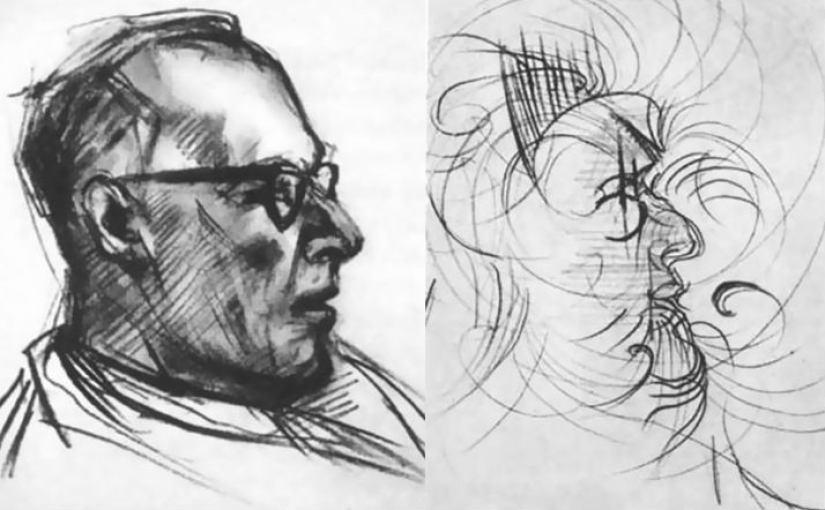
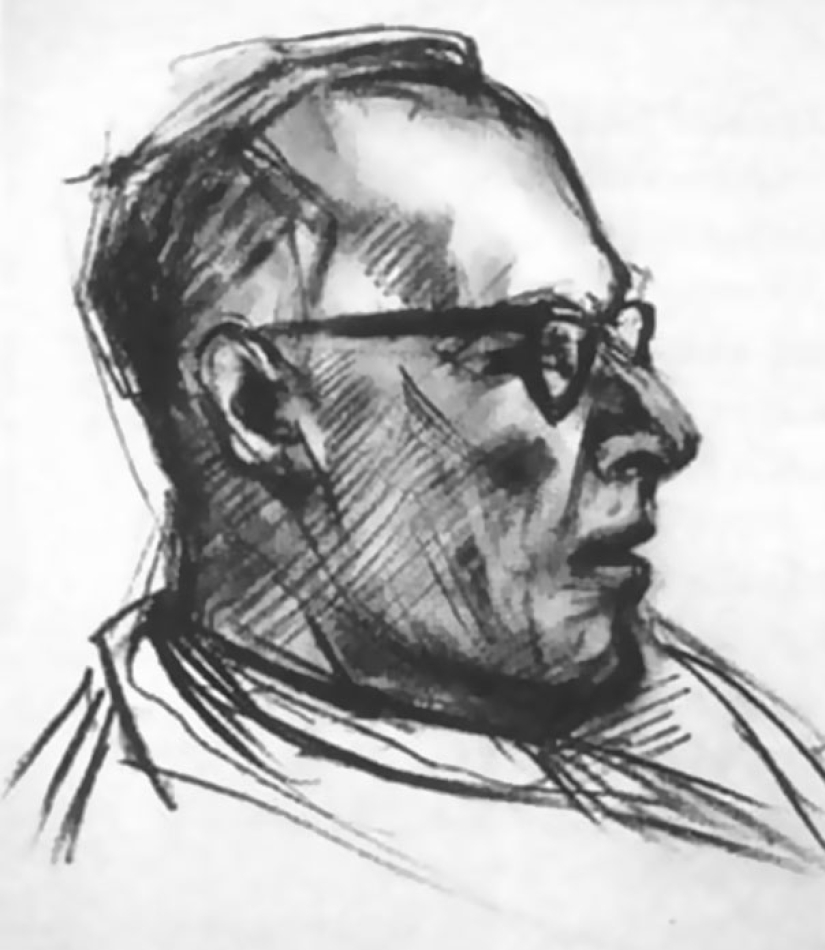
Time: 20 minutes after the first dose (50 micrograms).
The patient decides to draw with charcoal. The substance has not yet taken effect, according to the object.
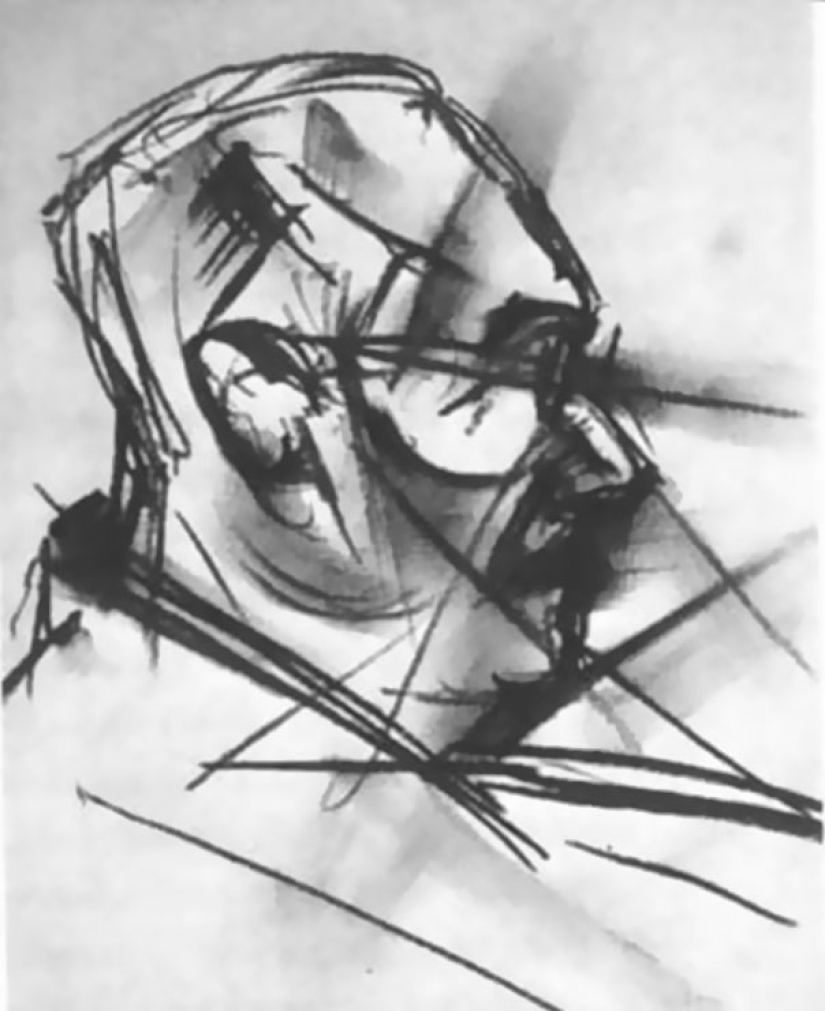
Time: 85 minutes after the first dose and 20 minutes after the second.
The patient seems to be in a state of euphoria. "I see everything so clearly now. It's... you... all of it… I can't control the pencil. It feels like he wants to move on himself."
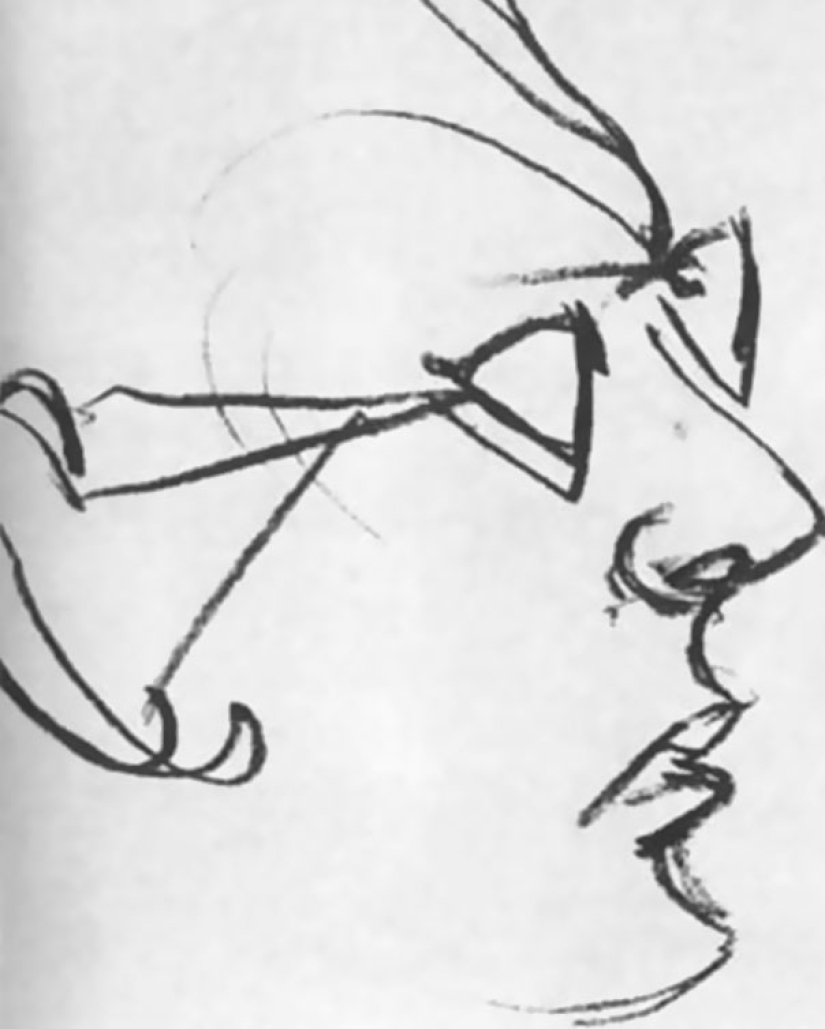
Time: 2 hours 30 minutes after the first dose.
The patient completely concentrated on drawing. "The contours seem normal, but the rest is so bright, it changes color. My hand should follow the bold movements of the lines. It feels like my consciousness is entirely concentrated in the parts of the body that are moving—the arm, the elbow... the tongue."

Time: 2 hours 32 minutes after the first dose.
The patient became interested in the notebook. "I want to try to draw in a different way. The model looks fine, but my drawing doesn't. My hand is changing too. The portrait didn't turn out very well, did it? I'll try again."
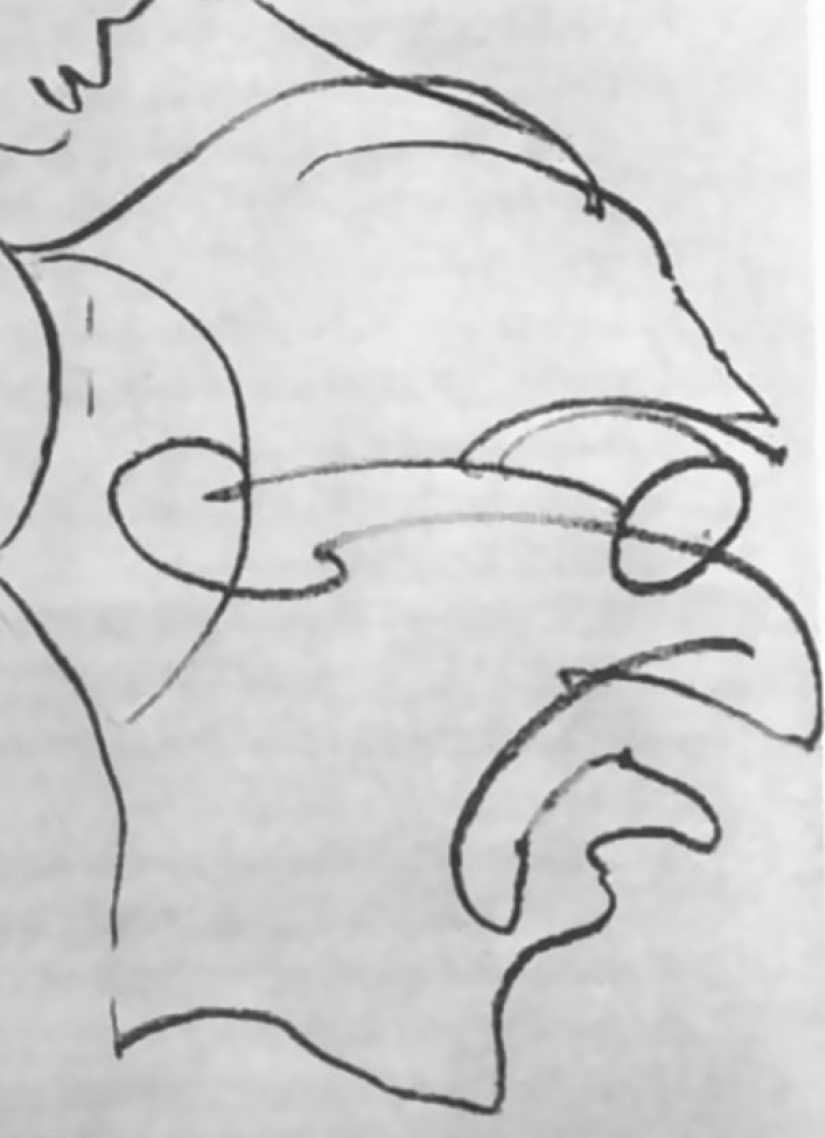
Time: 2 hours 35 minutes after the first dose.
The patient quickly begins to draw another portrait. "I will draw it in the form of a flower... without interrupting the line." When the drawing is ready, the patient starts laughing until he is distracted by something on the floor.
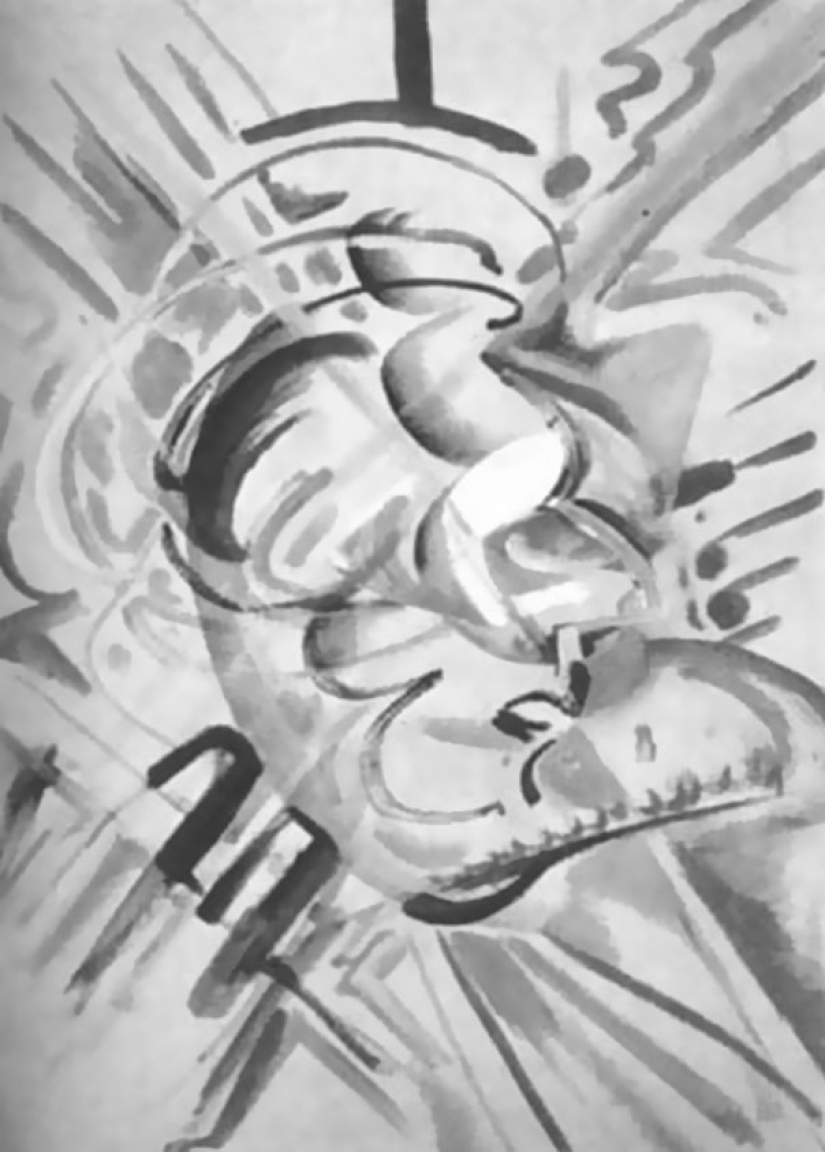
Time: 2 hours 45 minutes after the first dose.
The patient is trying to get into a box with pencils, he seems very excited. He reacts slowly to the suggestion to draw something else. "I... everything... has changed... they call... your face... is mixed up... who..." The patient hums almost soundlessly.
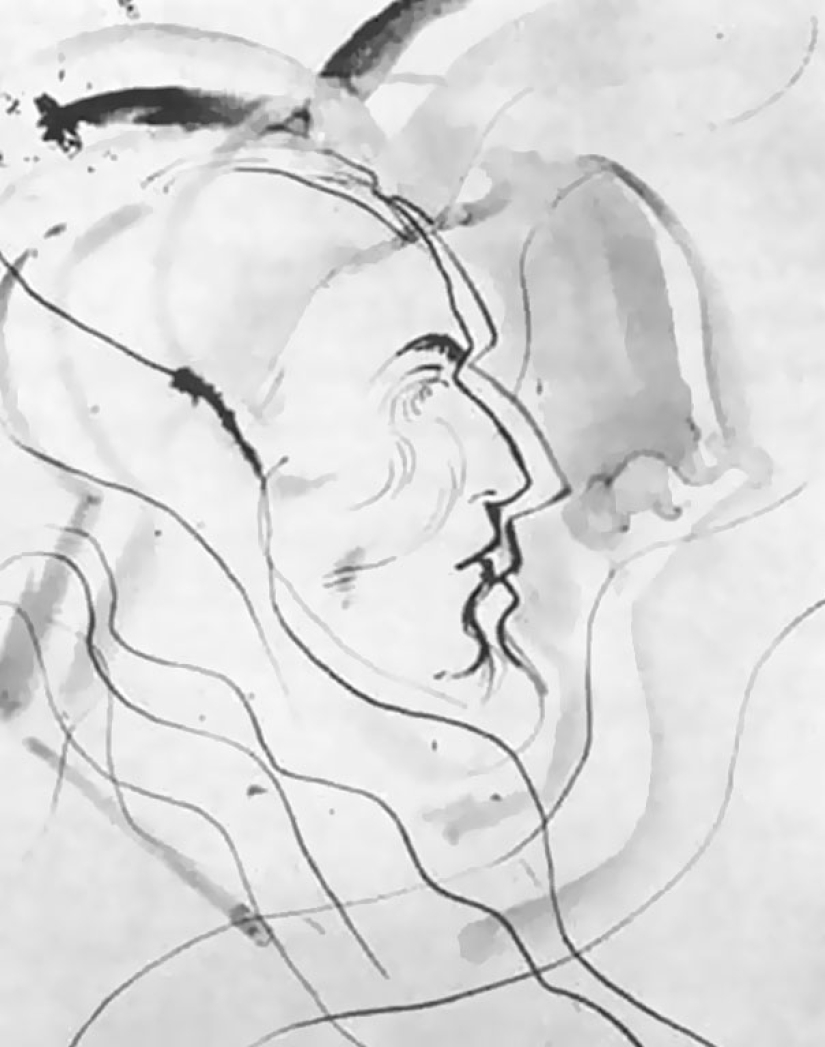
Time: 4 hours 25 minutes after the first dose.
The patient returns to the bed, lies for 2 hours and waves his hands in the air. Suddenly he returns to the box, selects a pen and a watercolor. "It will be the best drawing, almost like the first one, only better. If I'm not careful, I'll lose control of my movements, but I won't, because I know. I know," repeats the last phrase many times. The patient puts the finishing touches to the drawing by running around the room.
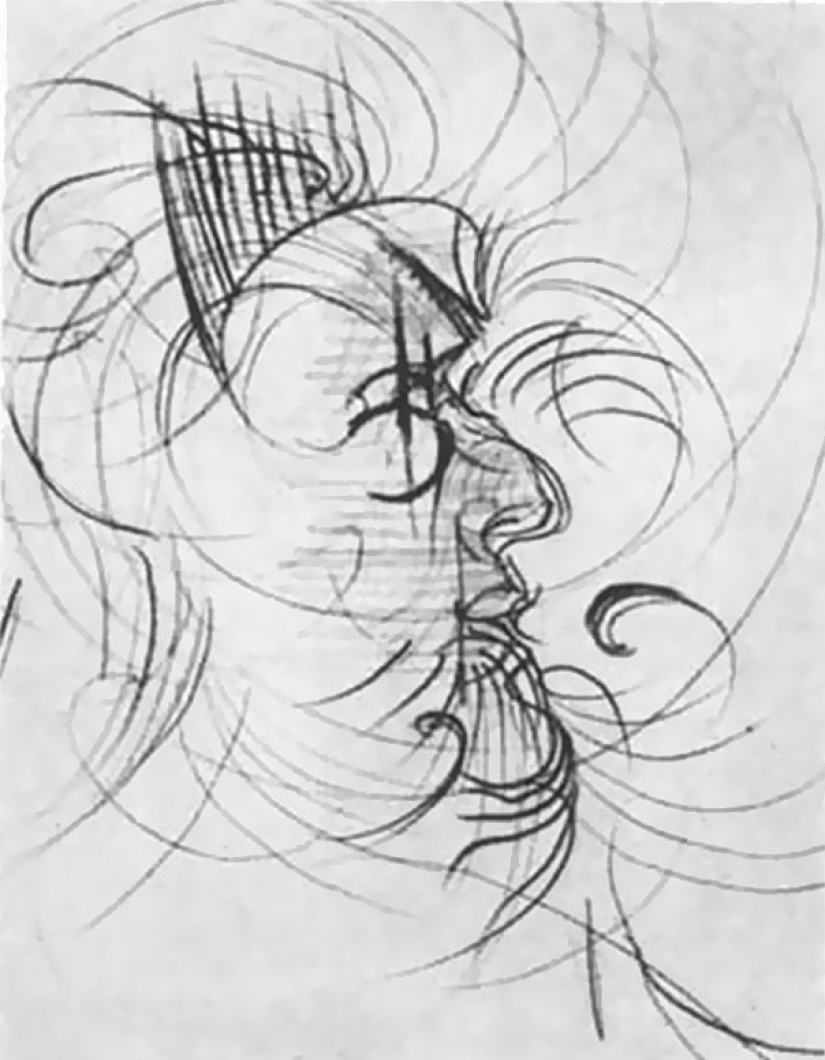
Time: 5 hours 45 minutes.
The patient continues to move around the room along a rather complex trajectory. It takes an hour and a half before he calms down and sits down to draw again. It seems that the effect of the substance is passing. "I'm starting to feel my knees again. I think the substance stops working. The drawing turned out to be quite good, however, it is difficult to hold a pencil" (in the hands of a pastel chalk).
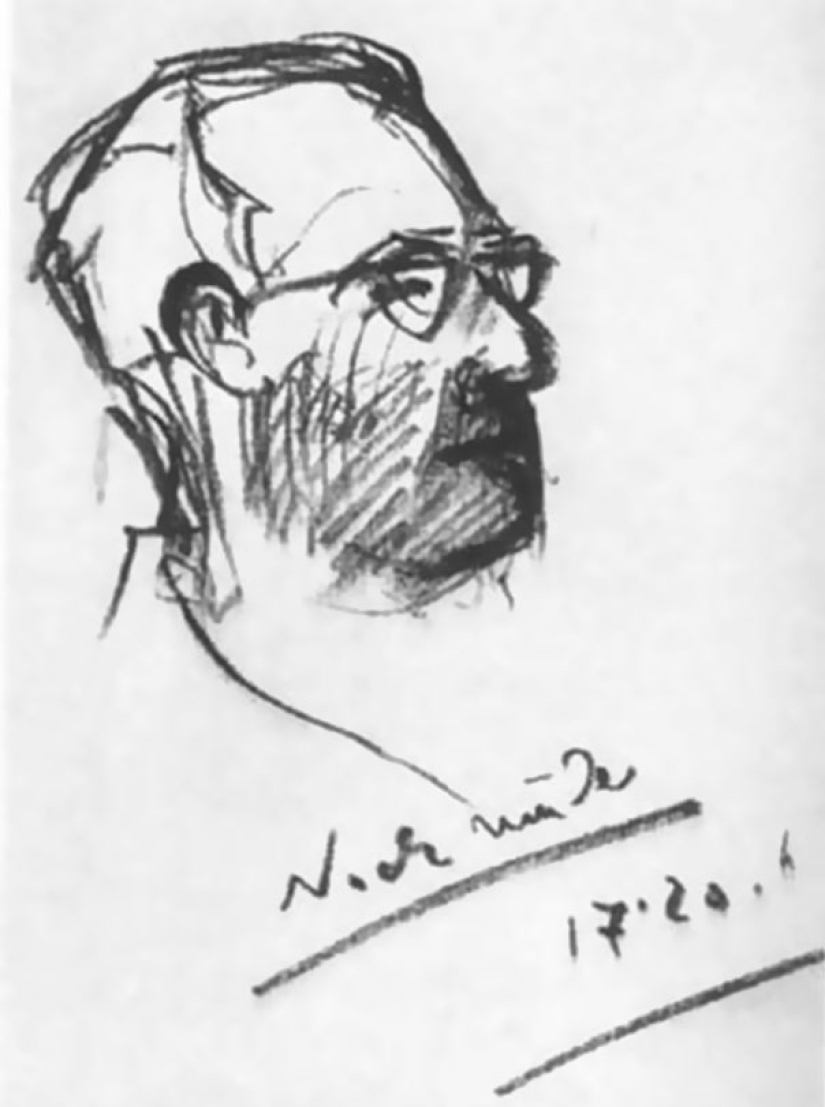
Time: 8 hours after the first dose.
The patient is sitting on the bed. He says that the intoxication has passed, except that our faces are still a little distorted. We ask him to make the last drawing, which he does without enthusiasm. "I can't say anything about the latter. He is unsuccessful and uninteresting. I want to go home."
Keywords: 1950s | 50s | Psychiatry | Artist | Experiment
Post News ArticleRecent articles

It's high time to admit that this whole hipster idea has gone too far. The concept has become so popular that even restaurants have ...

There is a perception that people only use 10% of their brain potential. But the heroes of our review, apparently, found a way to ...
Related articles
The name of the photographer is not known to everyone, but it is difficult to find a person who is not familiar with his works. ...

Since 1970‑ies in the neighboring cities of Rostov-on-don, Shakhty and Taganrog was sent to jail 37 serial killers, who killed ...

After the surrender of Japan in 1945, allied forces led by the US invaded the country. The Empire disintegrated, its form of ...

New Year's is a time to surprise and delight loved ones not only with gifts but also with a unique presentation of the holiday ...